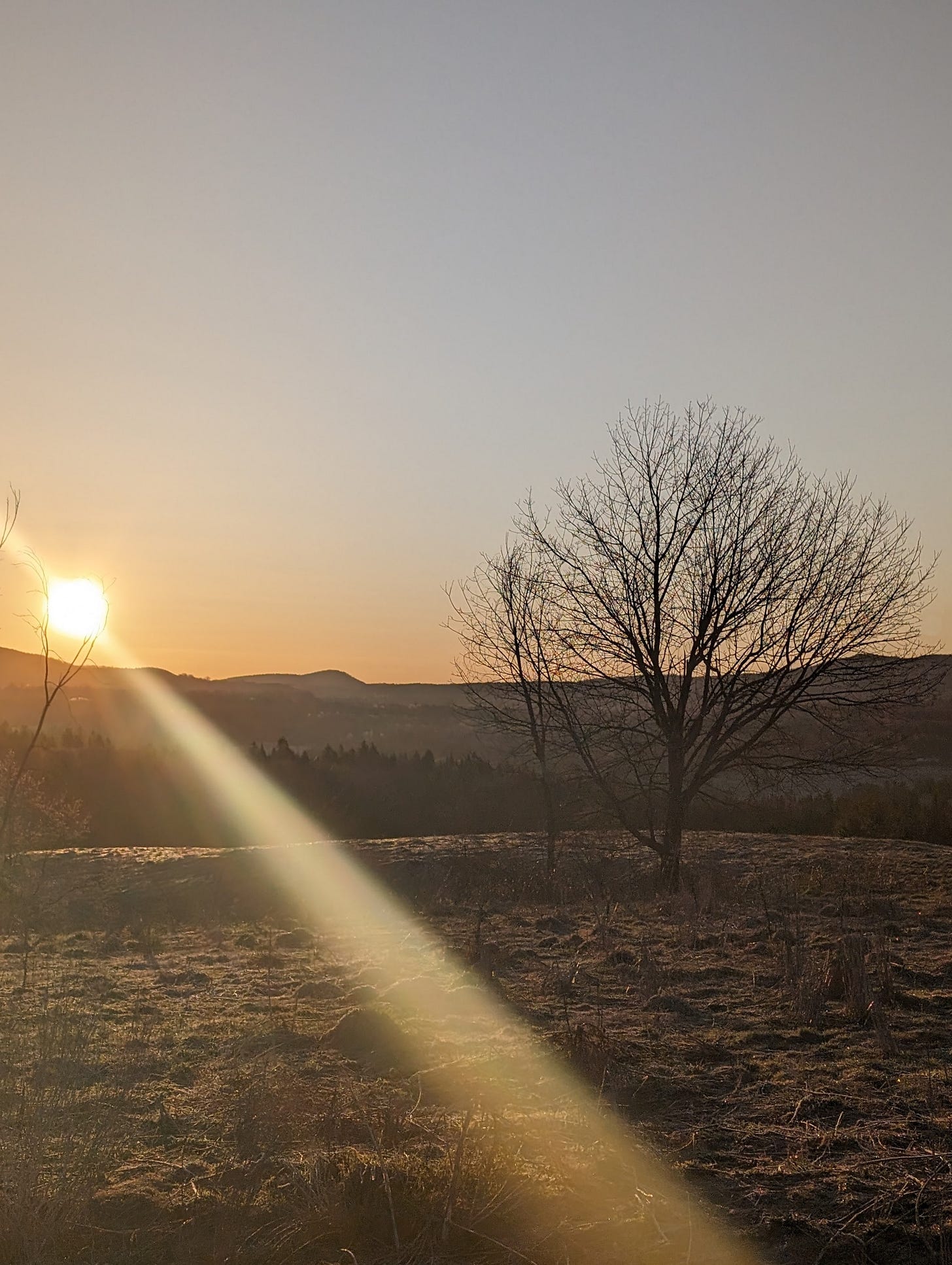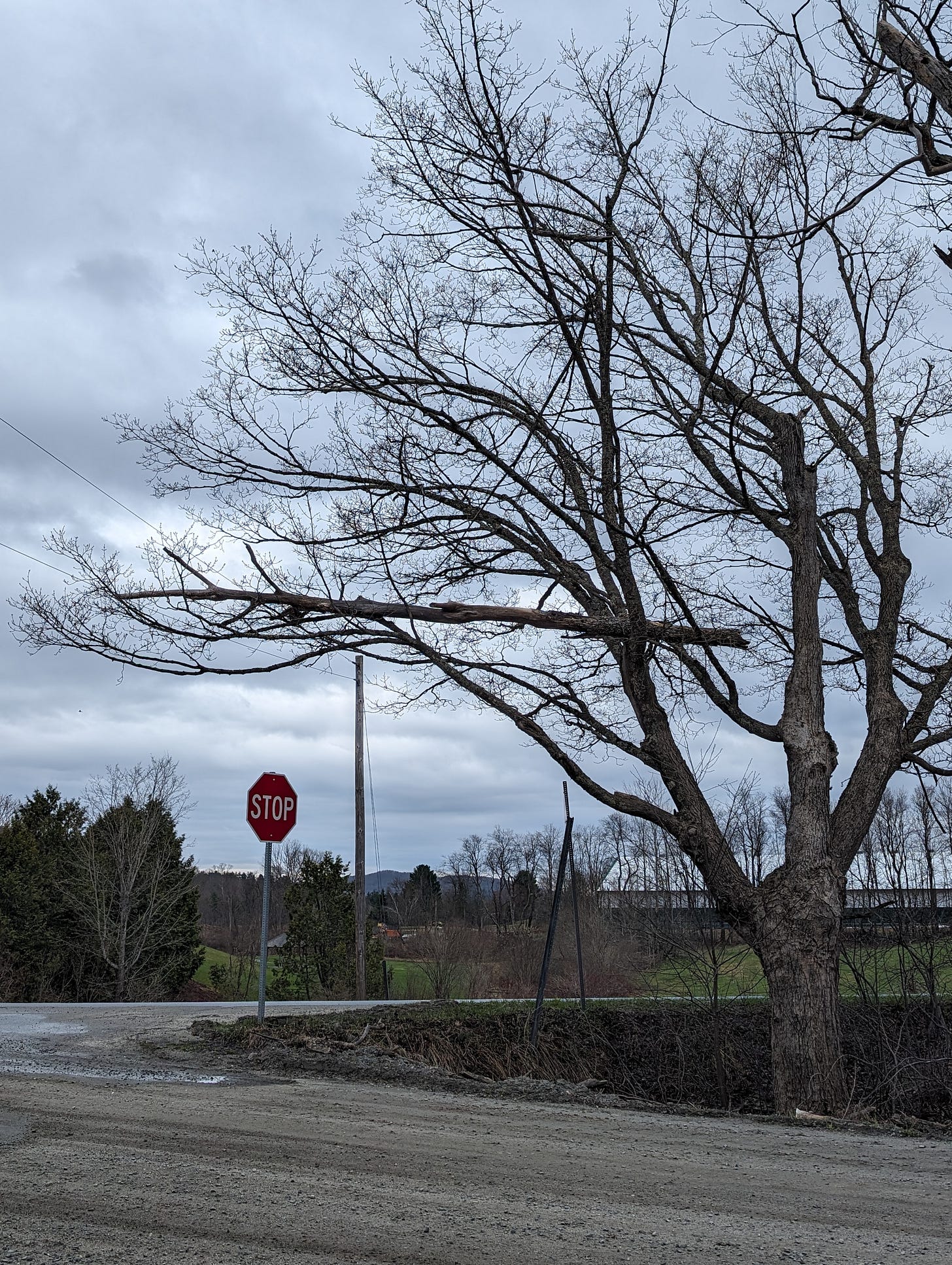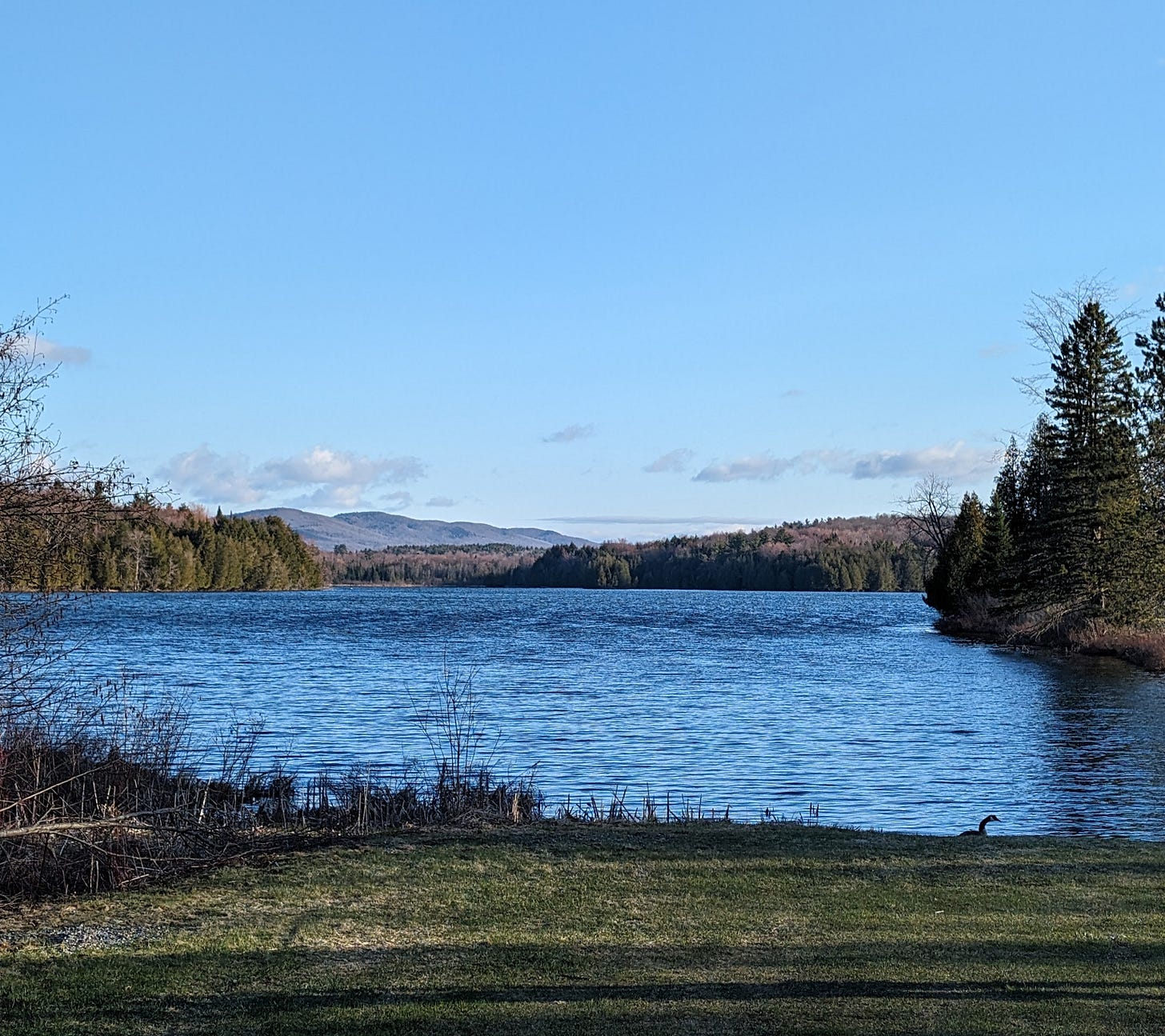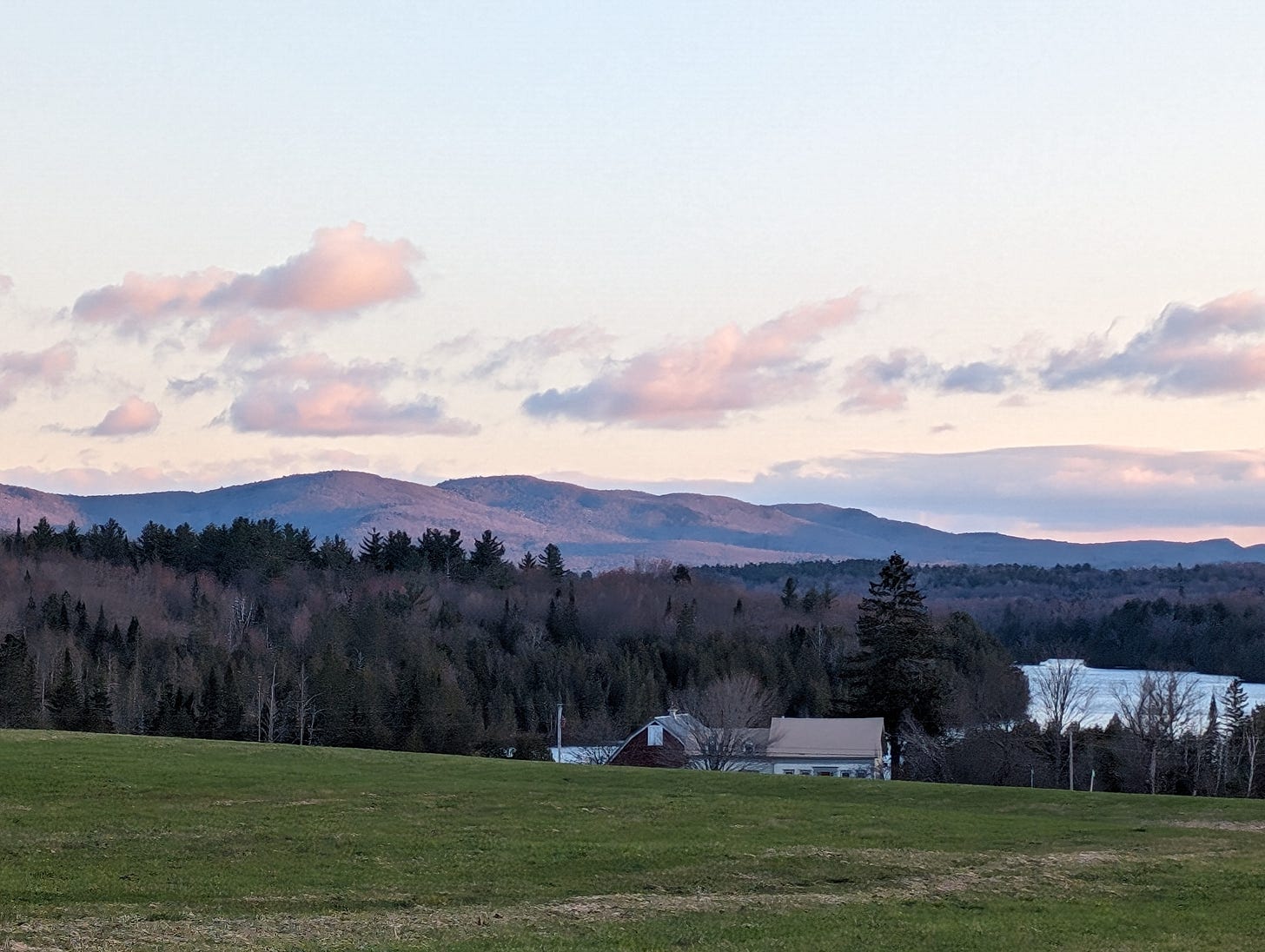Pray for Your Pruning
On our abiding branches
Jesus said, “I am the true vine, and my Father is the vinegrower. He removes every branch in me that bears no fruit. Every branch that bears fruit he prunes to make it bear more fruit. You have already been cleansed by the word that I have spoken to you.”
“Abide in me as I abide in you. Just as the branch cannot bear fruit by itself unless it abides in the vine, neither can you unless you abide in me. I am the vine; you are the branches. Those who abide in me and I in them bear much fruit, because apart from me you can do nothing. Whoever does not abide in me is thrown away like a branch and withers; such branches are gathered, thrown into the fire, and burned.”
“If you abide in me and my words abide in you, ask for whatever you wish, and it will be done for you. My Father is glorified by this, that you bear much fruit and become[c] my disciples.”
“As the Father has loved me, so I have loved you; abide in my love. If you keep my commandments, you will abide in my love, just as I have kept my Father’s commandments and abide in his love. I have said these things to you so that my joy may be in you and that your joy may be complete.”
“This is my commandment, that you love one another as I have loved you. No one has greater love than this, to lay down one’s life for one’s friends.”
John 15:1-13
Pruning Time
At the church manse where I live, this large bush grows next to the front window of the living room. In the first six months I’ve lived here, its twigs and branches would scrape up on the window whenever a wind blew (not like a hurricane, a stiff breeze) and make this screeching noise like carving your name on a chalkboard with a box cutter. I didn’t know what it was at first; maybe it was an intruder, maybe a squirrel, maybe an intruding squirrel. Eventually, I figured it out, and then before long I tuned it out. But when we had a church gathering at the manse back in February, it wasn’t long before people started asking, “Is that a mouse? A cat on fire?”
I think this is what our prayer life with God can be like. Often when we neglect it, we don’t even notice how it’s causing problems, we just get used to the problems until eventually, other people come around us and say, “Whoa, where’s that dying baby hawk?”
In the case of the manse’s bush, we have a church friend with some pruning experience who came and cleaned it up. In our spiritual life, God is our gardener, and prayer is one way we seek pruning. Prayer does not magically transform us or prune ourselves into the creatures we want to be, and it’s not to appease God. Prayer is God’s gift to us, as Calvin would say. And when we turn to him and ask him to be pruned, molded, and shaped according to his will, he shows us how he gardens.
The word for “pruning” in the John reading, kathairei, is more like “cleaning,” or “cleansing,” or “removing” than cutting, like clearing away branches. Crucially, the gardener doesn’t prune dead branches but ones that already give some amount of life and fruit. Having them pruned may be painful, but it is because some aspects of even good parts of our spiritual life can get in the way of an overall healthier relationship with God. There may be some things we’re doing to relate to God that are good and giving life, but they might still prevent even more flourishing in our relationship with him.
Burning the Dead Branches
But also, as Jesus tells us through this extended parable, some things can’t be pruned because they are already dead.
Earlier this week, I cleaned up all the branches in the yard that fell during winter. It was a lot of trudging back and forth, going back over spots I missed, sometimes dropping them and having to go back for them again. If pruning asks for God to fine-tune what’s working, cleaning up your yard full of broken sticks is like looking around and seeing the mess your sin has created. And if you’ve been through a long spiritual winter, you can have a lot of dead branches.
Branches die for all sorts of reasons. But what makes them snap off and clutter your ground? Storms. In scripture, storms are often a symbol for the spiritual life, and these are what finally cause our dead branches to break, snap, and fall under spiritual pressure. Without storms, some dead branches can hang on for a long time, even huge ones hundreds of feet in the air. Likewise, we can get away with our sin for a while.
But once the right kind of spiritual pressure comes—whether it’s a wind from God or just a wind from life—eventually, that dead branch is gonna snap off, and it might break a power line, and then it’s not just impacting you, it’s making things hard for the whole community.
Many people are allergic to any mentions of fire from Jesus (sometimes not knowing he said anything of it), often because of how these ideas are socially weaponized.1 But this fire is not all bad news. It is part of the pain of the spiritual life. In Christianity, we don’t have any saints who weren’t born sinners. In fact, there are no born saints. As the saying goes, “A saint is someone who realizes how much they’re a sinner,” and saints got there through much suffering and pruning, their dead branches blown off into the consuming fire of God.
The hardest times in our lives can be when we don’t want to let go of the dead branches of our most precious sins. Eventually, as in the classic rock-bottom moments of those in recovery, the turmoil of the storm brings us first to our knees. But then, by grace, these moments can clarify for us what the truly most essential, life-giving things are. For many, this is why and where a relationship with God becomes the new firm foundation of a new life. And often, that new life means painstakingly cleaning up the mess of a yard we left behind so that we can throw them into the bonfire of Christ.
Abiding in the Vine
Turning to Christ’s use of “abide” here, I think we say the word “abide” so much it loses its meaning, like when we repeat any word over and over until we feel the arbitrariness of language (I learned this is officially called semantic satiation).
Christ saying “abide in me” is not asking us to set time to just be quiet and rest. It’s not, “Abide in me when you go to bed,” or, “Abide in me before you eat.” He is also not saying slow down and chill out like the Dude in The Big Lebowski. This isn’t helped in a Christian culture where the beautiful hymn “Abide With Me” is typically a slow, emotionally heavy hymn seeking respite. But abiding in Christ doesn’t have to be this slow, “Aaaahhhh bbiiiiiiide with me” (I still love the hymn, and especially this Audrey Assad version of it).
Rather, abiding is ongoing, the active process of remaining in. In the case of Christ as the vine, he is saying in this passage during his last meal with his friends, “Remain connected to me,” for he is the source of life, before reminding them how much he loves them. Right before this in John 14, he tells us the Holy Spirit will be remaining with us too.
Part of this sense of remaining connected to Christ also means to know him, to trust him, and to follow him. As Porter Case Taylor says, it’s, the “sort of ‘knowing’ that moves beyond cognition and into something deeper…To abide in Christ is to know him as the way, the truth and the life. To know him ‘perfectly’ is to abide in his love just as he abides in the love of his Father… It is a knowledge that is based in love and based on faith.”
Abiding in Christ is not a standalone activity we do as a routine. To bring it back to the branch analogy, a branch isn’t just sometimes a part of the vine. It is grafted on, or it isn’t. So we might ask ourselves, what are the things and times in my life that are not connected to Christ? And where we are connected, how can they be pruned to be even healthier? What needs to go? And how do we know?
Church and the Praying Life
All this isn’t just individual spiritual life advice, and nothing in the Church is meant to solely be.2 It’s not “Here is self-help to be a super spiritual person that will dazzle your friends with your charisma and sell them on your project.” It’s always supposed to be about each other. How do we apply all this together? What do we need to do as a church to prune and grow? In addition to our community work helping all those in need, which is a vital expression of our spiritual fruit, Christians must never forget we are a praying community, that is, a group that prays together.
In the great and approachable book What if Jesus Was Serious About Prayer?, one thing author Skye Jethani mentions is that our goal is not to have a “prayer life,” like just setting aside time special to “abide,” but a praying life—a life that flourishes from the specific, time-delineated prayers into a prayerful life. For the vast majority of us, this is done in life together.
There is a common sentiment that we don’t need to go to church, that we can just step outside and feel close to God, and that’s enough. I think almost all of humanity feels this way to an extent, and many of us feel much closer outside than in church (including a good amount of Christians). And truly God is not just in these churches. As we sing in the ancient Christian tune “Ubi Caritas” that dates back to the eighth century, “Wherever there is love, wherever there is charity, there is God.”
But as a different song goes, “The church is not a building, the church is not a steeple, the church is not a resting place, the church is a people.” We worship and pray and fellowship and work together for many reasons, but one might be to be around other people who are also trying to remain connected to Christ. If nothing else, we need people in our lives who can say, “Hey, it sounds like there’s a cat on fire outside your spiritual house.” We need each other to be pruned together.
And so we are in church to pray together, not to have our set aside time to feel special and righteous, but to practice how to be always prayerful out in the world. Lent ended a month ago, but it was not just five weeks of spiritual bootcamp we check off, but an intentional practice of our whole year-round approach of abiding in Christ.
To be sure, I think setting aside time to practice praying both individually and with others is important. Such prayer is the practice that sets us up for the rest of our time. But imagine if you practiced an instrument and never played it for fun, for joy, for emotional connection. That’s like having a “prayer life” but not a “praying life.” Now imagine if you never practiced and just wanted to play concerts and win awards. That’s like not having a prayer life but trying to be a Christian out in the world.
The Abiding Branches
So whether we’re talking about in our own personal lives or as a collective praying people, the abiding branches that remain connected are intrinsically of Christ, the source of life. Whatever is not, let it be pruned or burned up. And we all need pruning.
We may not know where to start the pruning process. That’s okay. None of us really know all the ways we need pruning anyway, and it sometimes is not what we desire at all: “Not what I want, but what you want” (Mark 14:36). Even the old proto-New Age guru Alan Watts would say, “Self-improvement is like trying to bite your teeth.”
But as Thomas Merton wrote in his New Seeds of Contemplation, rather than striving to make God come to you to do what you want, you can “pray for your own discovery.” Likewise, we can pray to the Gardener for our pruning, and he will do this.
In particular, John has a history of being used towards anti-semitic purposes, and this passage is at risk of it too. Israel is often associated with vine examples throughout the Old Testament, and this can be used as an anti-Jewish polemic about cutting off the parts of Israel who reject Christ.
Rev. Dr. John Fairless and Rev. Dr. Delmer Chilton, Lectionary Lab Live







